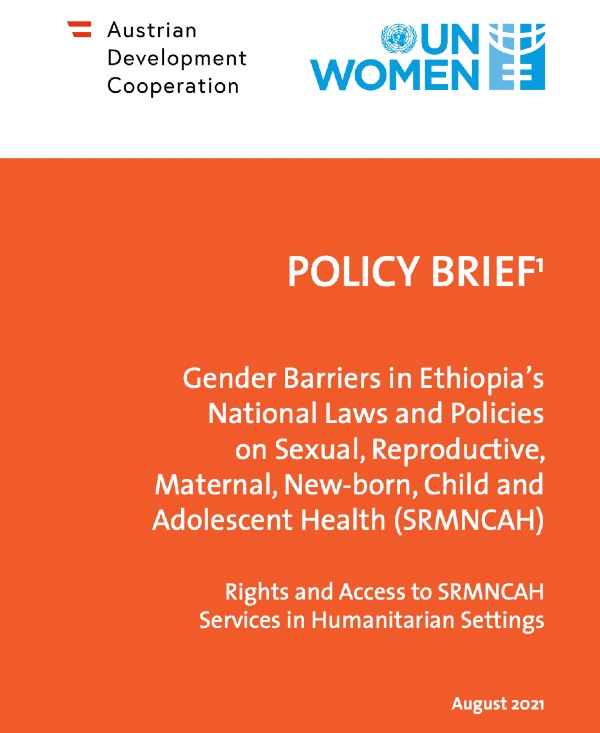
Gender Barriers Analysis in Ethiopia’s National Laws and Policies on Sexual, Reproductive, Maternal, New-born, Child and Adolescent Health (SRMNCAH) Rights and Access to SRMNCAH Services in Humanitarian Settings

The main objective of the study is to assess and analyze gender barriers of sexual, reproductive, maternal, newborn, child and adolescent health (SRMNCAH) related legal and policy frameworks in Ethiopia and its use in the humanitarian settings. The assessment emanates from UNWOMEN’S strong belief that key “demand barriers” [embedded in legal and policy frameworks] prevent women and girls from demanding and realizing their rights to SRMNCAH services; even if it is critical to improve the ‘supply’ side, through strengthening health systems and procurement of key commodities [which are the most common efforts]. As per the Global Policy Survey (WHO, 2020), Ethiopia currently has 81% of the recommended laws, policies, and guidelines, which facilitate implementation of SRMNCAH interventions and help standardization of services.
The review indicated that Ethiopia has not only ratified many of the conventions and treaties related to refugees and asylum seekers, but also formalized these laws into its Constitution and in the national Refugee Proclamation (2019). Furthermore, the country co-hosted the global refugee’s initiative in New York (2016); adopted the Comprehensive Refugee Response Framework (CRRF); developed the multi-sectoral Refugee Response Plan (RRP); The Inclusive Refugee Education Strategy, along with the 10 years National Comprehensive Refugee Response Strategy (NCRRS) – for all of which Ethiopia is praised as having the most progressive refugee policy in Africa.
However, a closer analysis of the health sector, regarding SRMNCAH services to women and girls in the humanitarian settings; the laws, policies, strategies, guidelines, programs, and plans of the sector indicated a clear gap in accommodating the needs of people in the humanitarian settings.